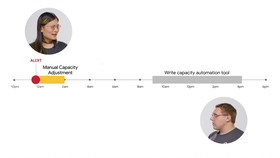# What's the Difference Between FHA Loan and Conventional Loan? A Comprehensive Guide to Choosing the Right Mortgage for You
When it comes to securing financing for your dream home, understanding your options is crucial. One of the most important decisions you'll face is choosing……
When it comes to securing financing for your dream home, understanding your options is crucial. One of the most important decisions you'll face is choosing between an FHA loan and a conventional loan. In this article, we will delve deep into the nuances of these two popular mortgage types, helping you answer the question: **what's the difference between FHA loan and conventional loan?**
## What is an FHA Loan?
An FHA loan, backed by the Federal Housing Administration, is designed to help lower-income and first-time homebuyers access affordable housing. The key features of FHA loans include:
- **Lower Down Payment Requirements**: FHA loans typically require a down payment as low as 3.5% of the purchase price. This makes it easier for buyers who may not have substantial savings.
- **Credit Score Flexibility**: FHA loans are more forgiving when it comes to credit scores. Borrowers with scores as low as 580 can qualify for the 3.5% down payment option, while those with scores between 500 and 579 may still qualify with a 10% down payment.
- **Mortgage Insurance Premium (MIP)**: FHA loans require both an upfront MIP and monthly premiums, which can add to the overall cost of the loan.
## What is a Conventional Loan?
A conventional loan is not insured or guaranteed by the federal government. Instead, these loans are offered by private lenders and can be either conforming (meeting Fannie Mae and Freddie Mac guidelines) or non-conforming. Key characteristics include:
- **Higher Down Payment Requirements**: Conventional loans typically require a down payment of at least 5%, with many lenders preferring 20% to avoid private mortgage insurance (PMI).

- **Stricter Credit Requirements**: Borrowers generally need a higher credit score (usually 620 or above) to qualify for a conventional loan.
- **No Mortgage Insurance with 20% Down**: If you can make a 20% down payment, you can avoid PMI altogether, making conventional loans potentially more cost-effective in the long run.
## What's the Difference Between FHA Loan and Conventional Loan?
Now that we've defined both types of loans, let's explore the key differences that can impact your decision:
1. **Eligibility Requirements**:
- FHA loans are designed for low-to-moderate-income borrowers, while conventional loans cater to a broader range of financial situations.

2. **Down Payment**:
- FHA loans allow for lower down payments (as low as 3.5%), whereas conventional loans usually require at least 5% and often prefer 20%.
3. **Credit Score**:
- FHA loans are more lenient with credit scores, making homeownership accessible to those with less-than-perfect credit. Conventional loans, on the other hand, require a higher credit score for approval.
4. **Mortgage Insurance**:
- FHA loans come with MIP, which is required for the life of the loan, while conventional loans can eliminate PMI with a 20% down payment.

5. **Loan Limits**:
- FHA loans have specific limits based on geographic location, while conventional loans can vary widely depending on the lender.
## Which Loan is Right for You?
Choosing between an FHA loan and a conventional loan ultimately depends on your financial situation and homeownership goals. If you have a lower credit score or limited savings, an FHA loan might be your best bet. However, if you have a solid credit history and can afford a larger down payment, a conventional loan may save you money in the long run.
In conclusion, understanding **what's the difference between FHA loan and conventional loan** is essential for making an informed decision. By considering your financial circumstances, credit score, and long-term goals, you can select the mortgage option that best suits your needs and paves the way to homeownership.